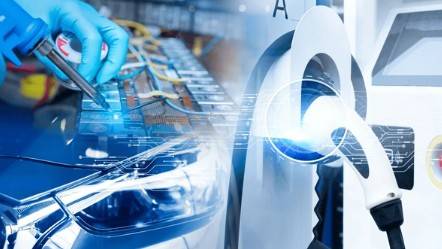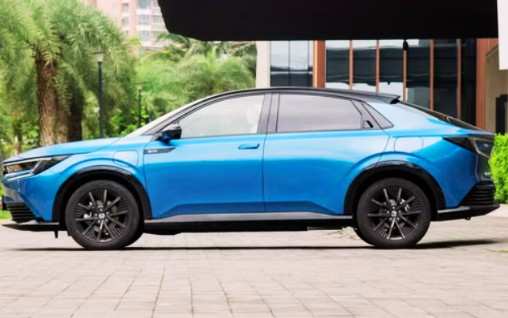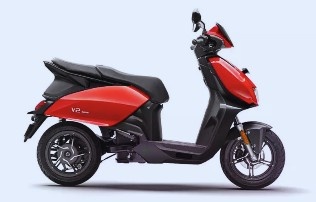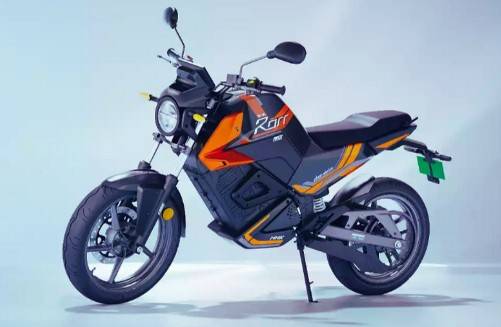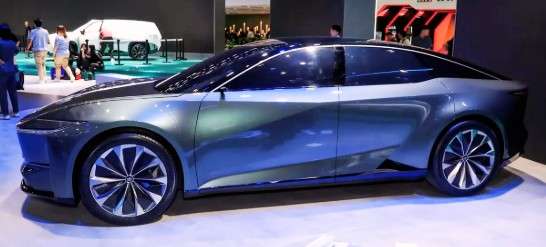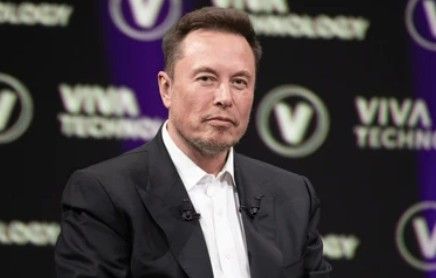With a shift towards green energy, India is positioning itself as a major participant in the electric vehicle market. The core focus of this change is the emergence of lithium-ion battery gigafactories to support the electrification of automobiles and other clean energy systems.
In this article, we will look at the seven biggest lithium-ion battery gigafactories in India and their importance, future, and prospects for the nation’s green energy agenda.
Overview of Lithium-Ion Battery Gigafactories in India
Lithium-ion batteries are an essential part of the new economy to power electric vehicles and store renewable energy. Today, these batteries have high energy density, long cycle life and low self-discharge making them suitable for many applications.
Prompted by the increasing adoption of electric vehicles (EVs) and renewable energy systems, there is a corresponding need for more massive production of lithium-ion batteries. India with ambitious plans for electric cars and renewable energy is building lithium-ion battery gigafactories.
These large build complicated factories are intended for the large-scale production of batteries to reduce the cost per unit and thereby make electric cars more affordable to customers.
The government of India’s drive towards the manufacturing sector through the ‘Make in India’ campaign and more recently, ‘Aatmanirbhar Bharat’ has seen these gigafactories set up much faster thus positioning India strategically in the global battery supply chain.
Now, let’s dive into the details of India’s seven largest lithium-ion battery gigafactories, exploring their capacities, key players, and impact on the Indian economy.
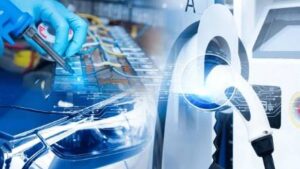
Location: Jamnagar, Gujarat
Capacity: 100 GWh (planned)
Key Players: Reliance Industries Limited (RIL)
Reliance Industries Limited, one of India’s largest conglomerates, has announced ambitious plans to set up a 100 GWh lithium ion battery Gigafactory in Jamnagar, Gujarat. The facility is part of Reliance’s broader strategy to diversify into green energy and reduce its carbon footprint.
The Gigafactory will be a key component of Reliance’s Dhirubhai Ambani Green Energy Giga Complex, which also includes facilities for solar panel production, hydrogen production, and fuel cells. The company plans to invest over $10 billion in green energy projects over the next few years, with the battery lithium ion gigafactory in India being a cornerstone of this initiative.
The RNESL Gigafactory aims to cater to not only the domestic electric vehicle market but also global markets. By producing lithium-ion batteries at scale, Reliance aims to reduce the cost of EV batteries, making electric vehicles more accessible to the average consumer.
Additionally, the factory will create thousands of jobs, contribute to the local economy, and support India’s goal of becoming a global manufacturing hub.
Location: Dholera, Gujarat
Capacity: 10 GWh
Key Players: Tata Chemicals, Tata Group
A prominent company operating in the lithium-ion battery industry in India is Tata Chemicals which is a part of Tata Group. To facilitate change in India’s mobility towards clean energy the company has invested in the establishment of a 10 GWh Lithium-ion battery factory in Dholera, Gujarat.
The plant is located in the Dholera Special Investment Region in Gujarat which is coming up as a Megaregion with a focus on advanced manufacturing industries. Tata Chemicals’ facility is for manufacturing lithium-ion cells that later form the battery pack used in EVs as well as in energy storage systems.
The company is also focusing on research and development (R&D) for technological advancement in battery chemistry to build better battery products in terms of performance and safety aspects. A good example is the management of end-of-life batteries where the company has endeavoured to come up with more environmentally friendly methods of recycling lithium-ion batteries.
Location: Tirupati, Andhra Pradesh
Capacity: 16 GWh (planned)
Key Players: Amara Raja Batteries
Indian company Amara Raja Batteries, which specializes in battery manufacturing for vehicles, has been actively involved in the production of lithium-ion batteries and intends to open a Gigafactory in Tirupati, Andhra Pradesh. The company that deals with automotive and industrial batteries is now looking for a new market to venture into due to the increase in the demand for lithium-ion batteries for electric vehicles and renewable energy storage.
The 16 GWh Gigafactory is a strategic investment for Amara Raja to build capacity to become a significant player in the energy storage solutions industry. One of the plans is to produce lithium-ion cells and battery packs, thus emphasizing the aspects of quality and dependability. Amara Raja is also sourcing its products from international technology partners to facilitate its products to be accepted to international standards.
The Tirupati Gigafactory can potentially generate new employment opportunities, thus contributing to the economy of Andhra Pradesh and making a reality its vision of leading to an industrialised state. It is also aligned with the objectives of the Indian government to support electric mobility and the use of indigenous batteries.
Location: Prantij, Gujarat
Capacity: 1.5 GWh (expandable)
Key Players: Exide Industries, Leclanché
The Indian auto battery major Exide Industries has entered into a joint venture with the Swiss energy storage player Leclanche to form NexCharge, which will deal in lithium battery. The NexCharge Gigafactory is in Prantij, Gujarat, and initially has a production capacity of 1. 5 GWh on the current site, with the potential for expansion in the future.
The plant manufactures lithium-ion rechargeable cells and packs for automotive, electric vehicle, renewable energy storage and power tools applications. Nex lithium ion battery charger intends to manufacture long-lasting and efficient batteries for the Indian market with the help of Leclanche’s experience in battery manufacturing.
This venture of Exide Industries into lithium-ion batteries is a major deviation from its core business line of lead-acid batteries. To address the growing demands of the electric mobility business segment, the company has been extending sizeable resources for research and innovation in evolving more potent battery systems. The NexCharge Gigafactory is one of the significant components of the future development plan and product portfolio expansion in the battery industry for Exide.
Location: Mundra, Gujarat
Capacity: 50 GWh (planned)
Key Players: Adani Group
Adani Group, having businesses in the energy, logistics, and infrastructure sectors, is keen to enter the lithium-ion battery space through the planned Gigafactory in Mundra, Gujarat. The new 50 GWh facility will be a part of a huge scheme of investment in renewable energy and electric mobility being planned by the Adani Group.
The Mundra Gigafactory will mainly specialize in lithium-ion cells and battery packs that are used in electric vehicles, renewable energy storage, and other uses. Through Adani Group, the Gigafactory has the expertise in the development of infrastructure in the logistics sector necessary to meet the increasing demand for lithium-ion batteries for both the domestic and export markets.
Investment in Lithium-ion battery production by the Adani Group is a strategic move towards the realization of its long-term goal of being a producer of renewable energy. As for the battery, the company has also considered secondary-use applications such as battery recycling and electric vehicle batteries, which is another positive endeavour for making the battery more sustainable.
Location: Hansalpur, Gujarat
Capacity: 10 GWh (planned)
Key Players: Suzuki Motor Corporation, Toshiba, Denso
Industry giants like Toshiba, Denso, and the Suzuki Motor Corporation are some of the prominent investors that established TDS Lithium-ion Battery Private Limited. A Gigafactory has been established in Hansalpur, Gujarat to support Suzuki’s vision to make more electric vehicles available in the market.
A 10 GWh facility to produce lithium-ion cells and battery packs for use in Suzuki electric vehicles which have models that are currently in the Indian market. The Gigafactory is adjacent to the production line of Suzuki automobiles, thereby facilitating the integration of battery manufacturing and automobile construction.
Suzuki’s entry into direct production of lithium-ion batteries is a clear sign that electric vehicles are a strategic business division in its product mix. The partnership consideration with Toshiba and Denso is in battery technology, electronics and automobile production to ensure that Gigafactory PTC 58 produces the best batteries in the global marketplace.
Location: Krishnagiri, Tamil Nadu
Capacity: 15 GWh (planned)
Key Players: Ola Electric Mobility
Ola Electric Mobility the electric vehicle arm of ride-hailing firm Ola is expecting to set up a 15 GWh lithium-ion battery Gigafactory in Krishnagiri, Tamil Nadu. The Gigafactory is a crucial aspect of Ola’s strategic plan that outlines the firm’s intent to establish itself as a significant figure in electric mobility and battery manufacturing within India.
The purpose of this plant is to produce lithium-ion cells and battery packs for a company known as Ola which has recently sparked a lot of interest in electric scooters in India. Thus, Ola Electric is more efficient than most other EV makers as it vertically integrates electric car production with battery production.
Gigafactory is also vital to Tesla’s long-term vision of creating a comprehensive ecosystem for EVs in India. This is about charging infrastructure, battery-swapping networks, and energy management systems, all of which the company is already investing in and all of which will be critical to the mass market in electric vehicles.
Conclusion
The swift emergence of gigafactories with lithium-ion batteries in India is a crucial need to enhance the country’s target of electric mobility and a renewable energy powerhouse. These facilities also lower the price of electric cars and an affordable to the public through the following ways.
As an added advantage, these facilities generate new economic opportunities such as job creation, and innovation among other benefits. Supported by comprehensive policies and intensive collaboration with Indian groups and international partners, the Indian battery industry is expected to help drive the nation’s green energy future.
A more detailed view on the effects of lithium-ion battery technology around the world and perspectives from insiders you can read in this Forbes article on the Future of Battery Technology. Interested to know more about electric vehicles in India? Then this is for you “click here’ to learn more about the future of green mobility. ”
FAQ’s
-
Why are lithium-ion battery gigafactories important for India?
Lithium-ion battery gigafactories are crucial for India as they support the growth of electric vehicles and renewable energy, reduce dependence on battery imports, and create jobs, thereby boosting the economy and contributing to the country’s green energy goals.
-
Which companies are leading the lithium-ion battery manufacturing in India?
Leading companies in India’s lithium-ion battery manufacturing include Reliance Industries, Tata Chemicals, Amara Raja Batteries, and Ola Electric, among others.
-
Where are the major lithium-ion battery gigafactories located in India?
The major gigafactories are located in states like Gujarat (Jamnagar, Dholera, Mundra, Hansalpur), Andhra Pradesh (Tirupati), and Tamil Nadu (Krishnagiri).
-
What is the expected impact of these gigafactories on the Indian economy?
These gigafactories are expected to create thousands of jobs, reduce the cost of electric vehicles, and position India as a global hub for battery manufacturing, thereby significantly boosting the economy.
-
How is the Indian government supporting the growth of lithium-ion battery gigafactories?
The Indian government supports this growth through initiatives like the Production Linked Incentive (PLI) scheme, which encourages domestic manufacturing of advanced battery technologies and reduces reliance on imports.

